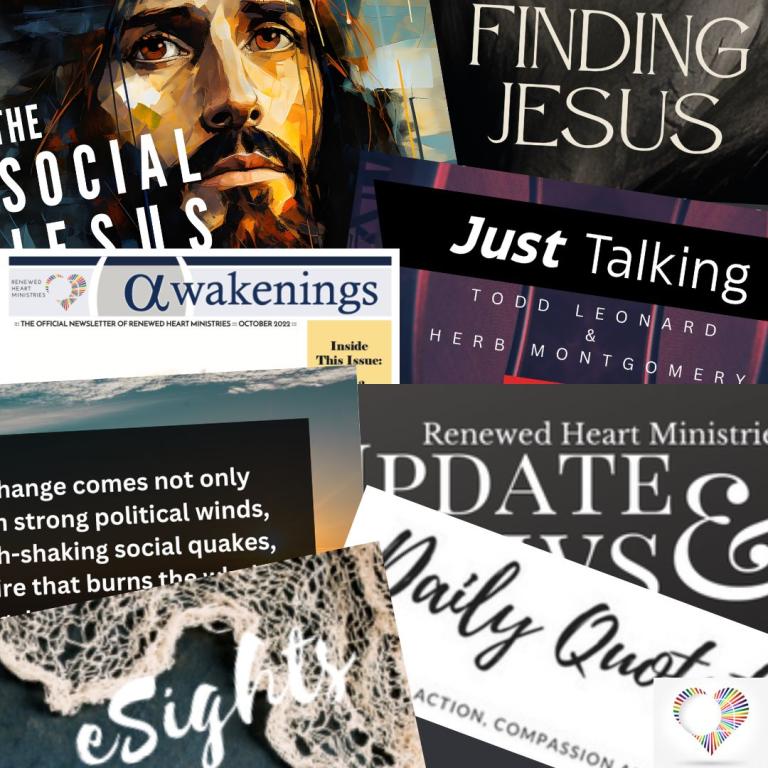
As we continue our consideration of Refusing to Passively Endure Injustice, remember, whatever we make of the claim of Jesus’ messiahship today, we must be intentional about holding our interpretation in a life-giving way for all. Messiahship originally meant liberation and restoration. Today we must similarly hold our interpretation in a way that does no harm. Within Christianity today, we must be especially careful in regard to the history of harm we are responsible for by the careless ways we have used the term “Messiah” when we speak of Jesus.
Welcome Readers! Please subscribe to Social Jesus Here.
(Read this series from its beginning here.)
Let’s now talk about Jesus’ call to take up the cross. Many Christians have held the cross in a way that promotes the myth of redemptive suffering. Too often, bearing one’s cross refers to the kind of suffering that every person suffers whether they are standing up for justice or not. Let’s be honest: life includes a lot of suffering. It’s how we interpret and respond to that suffering that matters. But the cross was only about a specific kind of suffering, not all suffering in general. The cross was a political consequence and had a political context. The cross was suffering perpetrated by those in positions of power and privilege on people who were calling for change within an unjust system. Latin American liberation theologian Jon Sobrino warns us of romanticizing the cross and removing it from its original political context, and thus romanticizing suffering that has nothing to do with working for justice.
“There has been. a tendency to isolate the cross from the historical course that led Jesus to it by virtue of his conflicts with those who held political religious power. In this way the cross has been turned into nothing more than a paradigm of the suffering to which all human beings are subject insofar as they are limited beings. This has given rise to a mystique of suffering rather than to a mystique of following Jesus, whose historical career led to the historical cross.” (Jon Sobrino, quoted in Joanne Carlson Brown and Rebecca Parker’s For God So Loved the World?, p. 16)
Suffering doesn’t give life. Mujerista theologians (Hispanic woman’s liberation theologians) remind us that life is found in our struggle against suffering (see Isasi-Diaz, Ada Maria. Mujerista Theology: A Theology for the Twenty-First Century, p. 21).
Jesus didn’t choose to suffer. He chose to live a life in opposition to injustice and oppression. Jesus didn’t choose to die. He chose to refuse to let go of his hold on the fight for justice when threatened with a Roman cross if he continued. For Jesus, the cross was a Roman-imposed response to Jesus’ refusal to change his course. The cross today is not suffering in general but the threat by those who benefit from an unjust status quo that we will suffer if we speak out. I don’t interpret Jesus in this week’s reading as promoting suffering. Rather he is calling for those being threatened for speaking out against injustice to keep speaking out, to not be silent, to keep up the fight and join him in the fight even in the face of real threats.
Joanne Carlson Brown and Rebecca Parker, feminist theologians, rightly caution us regarding how we interpret the cross. We’ll begin with a closer consideration of their caution, next.
(Read Part 3)
Are you receiving all of RHM’s free resources each week?
Begin each day being inspired toward love, compassion, justice and action. Free.
Sign up at:
https://renewedheartministries.com/Contact-forms/?form=EmailSignUp














